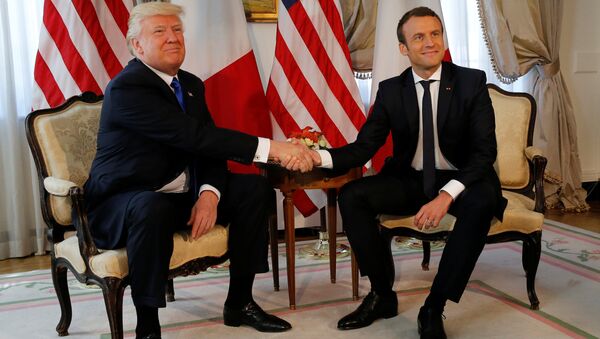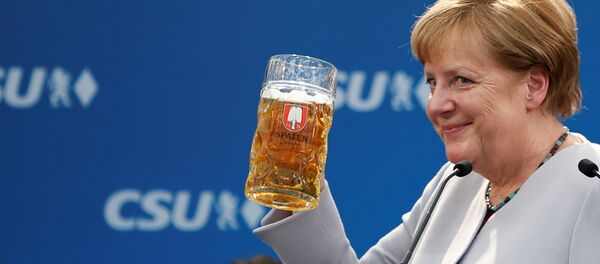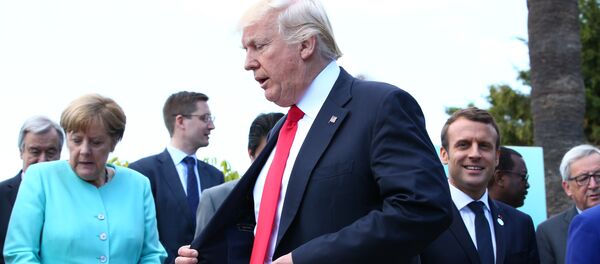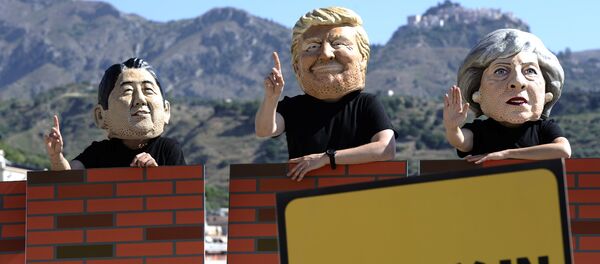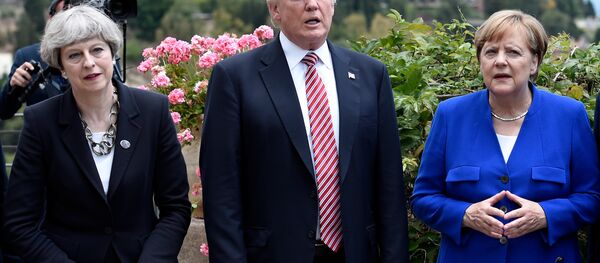Additionally, Chinese authorities have acquired a new opponent in the person of new French President Emmanuel Macron.
At his first EU summit, Macron urged the curbing Chinese takeovers in Europe's strategic industries, warning EU governments not to be naive in global trade, according to Reuters. A free-trade advocate, Macron let several national corporate champions be taken over by foreign firms while at the helm of France's Ministry of Economics.
However, recently, he told the EU countries that being an attractive destination for investment did not mean exposing Europe to what he termed "the disorder of globalization."
"Things are changing because we see the disorder of globalization and the consequences in your own country. I want to build an alliance around this idea," Macron told a news conference during the summit of EU leaders in Berlin earlier in June.
The French leader then referred to state-owned ChemChina's $43 billion purchase of Swiss pesticides and seeds group Syngenta, Beijing's biggest overseas purchase to date, which has deepened concerns in Europe that the bloc is ceding control of its advanced technology.
Macron said that he had always been a defender of globalization and free trade during his time as minister but that leaders should hear from workers hit by globalization. He has found some support from Germany and Italy. EU leaders agreed to allow the European Commission to explore ways to limit foreign takeovers in areas such as energy, banking and technology, where China seeks Europe's know-how.
Chinese direct investment in the European Union jumped 77 percent last year to more than 35 billion euros ($38 billion), compared with 2015, while EU acquisitions in China fell for the second consecutive year, Reuters reported, quoting the statistics of Rhodium Group, a New York-based research consultancy and advisory company.
Gashkov noted that the EU intends to compensate the inequality in the bilateral trade with duties. In May, the European Commission announced new anti-dumping duties on pipes and tubes made from steel and iron in China, its latest attempt to stop the flow of cheap metal from the country.
The European Union also will not grant China Market Economy Status.
Macron's attack on China, Gashkov notes, coincides with a cooling-down in US-China relations. In April, Donald Trump and Xi Jinping agreed to exert pressure on North Korea over its nuclear program. However recently Reuters reported, citing three senior US administration officials, that "President Donald Trump is growing increasingly frustrated with China over its inaction on North Korea and bilateral trade issues and is now considering possible trade actions against Beijing."
"The discord in the emerging cooperation might signal the return of President Trump to his previous anti-Chinese rhetoric, which is being proved by the announced anti-China measures in economic and military spheres," Gashkov says.
"Simultaneous anti-Chinese demarches by the US and the EU signify that China's policy of driving a wedge between the US and its European allies is not bringing results. It might be especial vexing to Beijing after its tactical success in May of 2017. When Washington announced its withdrawal from the Paris agreement on climate change, China and the EU reached an understanding on the issue, signaling an possibility of rapprochement with the US," Gashkov says.
During the Munich Security Conference in February, Chinese and European leaders were also together, he says. They jointly condemned the protectionist ideas of Donald Trump. However, they were unable to bring closer their positions on economic issues, including Chinese dumping, neither then, nor now.
"With Macron as a new player at the European stage, Beijing can lay hope only on the southern and eastern European economies that are dependent on Chinese investments. China hopes that the counteraction of Portugal, Greece, Sweden and Spain will enable it to avoid new restrictive measures of the EU," he says.
Meanwhile, Emmanuel Macron offered his hand to Donald Trump, who outlined the unity of their approaches to the Syrian conflict. President Trump, in turn, has accepted the French President's invitation to visit and plans to travel to France to celebrate Bastille Day on July 14.

